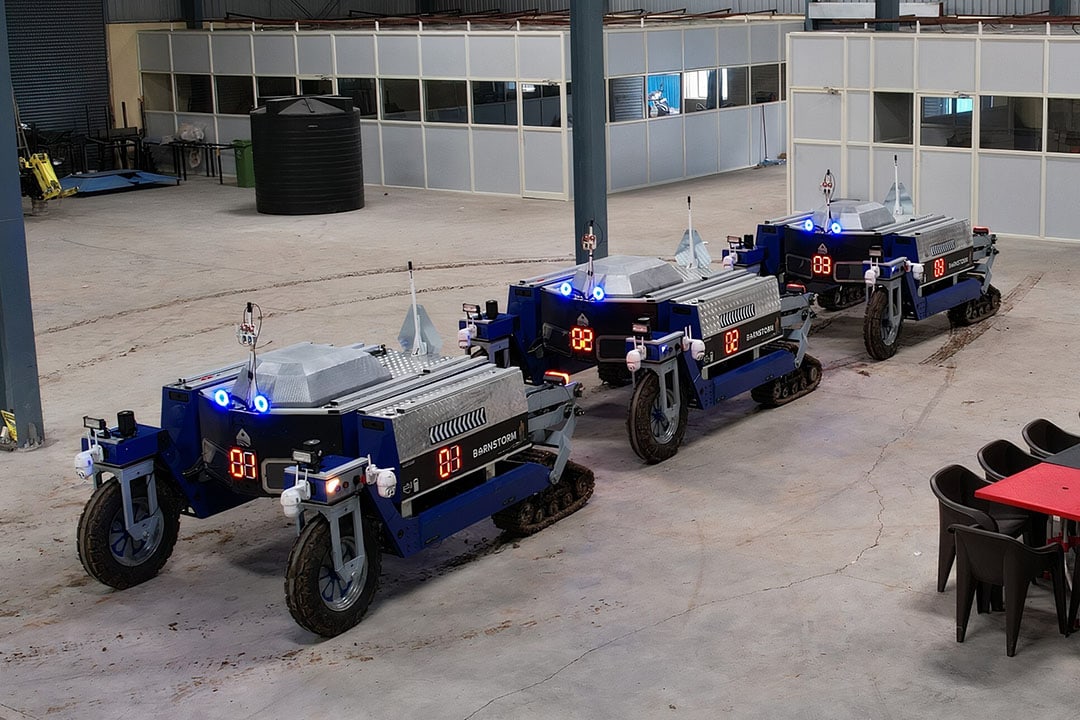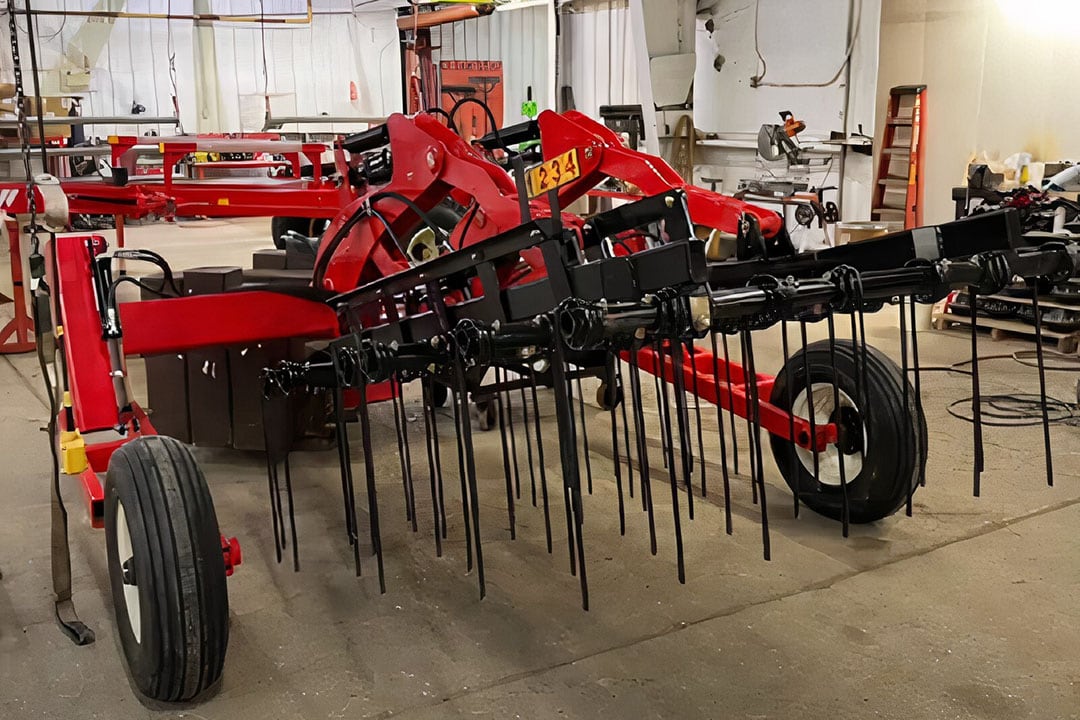Barnstorm on its way to beta-test its swarm robotics platform

Canadian company Barnstorm Agtech expects to beta-test its swarm robotics platform next year in Canada. The commercial launch of the “Barnstormers” is planned for 2024.
The company from Saskatchewan will then start with Farming as a Service (FaaS) on the prairies in Canada along highway 16 and in Northern US along highway 129. A 10% market share in those regions would result in a CAN $54-million-dollar (US $39.5 million) market for Barnstorm. The start-up will begin with tillage, spraying and spreading services.
Barnstorm aims to scale quickly, once its technology is proven. The company says it could possibly service between 7 and 8 million acres with up to 1,000 Barnstormers in 2027. By then the company foresees a revenue of CAN $55 million (US $40.3) and an EBITDA of CAN $35 million (US $25.60).
Text continues below image

Plenty of interest from grain farms
The start-up anticipates plenty of interest from grain farms in Canada and the US. A huge shortfall in labour is forecast on farms in both countries in the coming years. “Canadian farmers are often competing with oil companies for manual labour”, Chief Technology Officer and co-founder Mitchell London of Barnstorm explains. And broadly the labour pool is declining steadily. That is a pattern in every developed country. There is unreliable access to labour.”
Barnstorm believes it can offer a solution for this labour problem with its swarm robotics platform. Swarms of small autonomous machines can offer all the same operations as bigger machines and are also faster, cheaper, and easier to repair, Barnstorm emphasises. And they don’t have a single point of failure.
Text continues below video
A trend back to smaller sized machines
In the fifties, almost all tractors were small, Mr London points out. “Gradually they have become these monstrous large machines. That was driven by labour cost and scarcity. Now that you have autonomy and self-steering, you don’t actually need these gigantic machines. And these machines have issues, like compaction and less fuel-efficiency. So, our belief is that we’ll see a trend back to smaller size machines.”
Mr London says that one person will be able to manage an entire swarm of Barnstormers. “There still will be somebody there to go in and move a vehicle out of the way, if there is a mechanical problem for example. But casual issues can be sorted out remotely. Controllers can use a tablet or computer, even if the internet is not functional, because the base station has Wi-Fi.”
Text continues below image

45-horsepower diesel hybrid powertrain
The Barnstormer has a 45-horsepower diesel hybrid powertrain. Vehicles will also be able to run on an electric mode, if necessary for a certain task. A Tesla like development in agriculture is unrealistic this decade, given battery costs and the lack of rural electrification infrastructure, Mr London says.
If you’re in a grain farm operation or in large-scale row-crops, electric solutions are not feasible
“What Monarch Tractors is doing, is good for a hobby farmer, who occasionally goes out with his one tractor and does some work for a few hours. But if you’re in a grain farm operation or in large-scale row-crops, electric solutions are not feasible.”
A low risk, low friction path forwards
Barnstorm focusses on a high utilisation rate of its technology, and will offer Farming as a Service (FaaS) for 24/7 commercial scale farm operations. “If you only get a 50 percent usage out of your vehicle, it effectively will double your capital expenditures”, Mr London emphasises.
The company plans to start with tillage and spraying. Farming as a Service gives Barnstorm a low risk, low friction path forwards. “We will have an affordable custom farming service. Farmers will not do the entire 6000 acres of their farm with our technology, but they might try us out for 500 acres or 1,000 acres. There is often a narrow time window to complete field operations, and we can help out to do this.”
“If an uncle or cousin retires and other family members take on another 1000 or 2000 acres, farmers often do not have enough equipment to service this land, and they can’t justify buying another enormous tractor because of this minor increment in their field size. We could give them an easy solution.”
Farmers can book Barnstorm on a per acre basis for a particular job. Barnstorm will monitor the machines and provide the service, implements, repairs and labour needed for its service. For the longer term, Barnstorm is considering franchising. “But we’re not entirely decided in how we will structure franchising. It could be largely based on geography or it can be based on crop-type.”
Text continues below image

As many implements partners as possible
“Our area of expertise is mainly in broadacre, but we didn’t want to lock ourselves in. It is sufficiently versatile for broadacre, row-crops, orchards and vineyards”, Mr London says. “Companies that are innovating with precision agtech – whether it is a laser-weeder, a rock-picker or a soil sampler – shouldn’t need to also invent the precision mobile platform. So, when we enter the market, we are basically a precision tug. We already have quite a lot of companies expressing interest in this.”
The technology has an open API, to encourage as many implements partners as possible to join. “But companies cannot strongly commit to us before they see products in the field”, Mr London says. “But look at a company like Carbon Robotics, a very attractive company with a laser weed-killing technology. They were first showing this mobile robot, the size of a van. And a few months ago, they made a pivot, and are now showing their technology as an implement only. That is a decision I think that most companies will make. If you look at a strawberry management system, the tech is not in the mobility along the row-crop.“
Join 17,000+ subscribers
Subscribe to our newsletter to stay updated about all the need-to-know content in the agricultural sector, two times a week.



